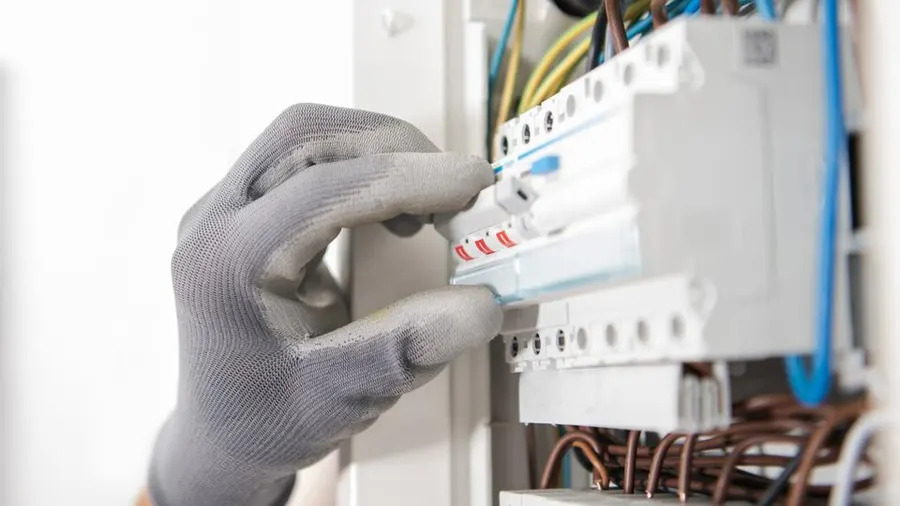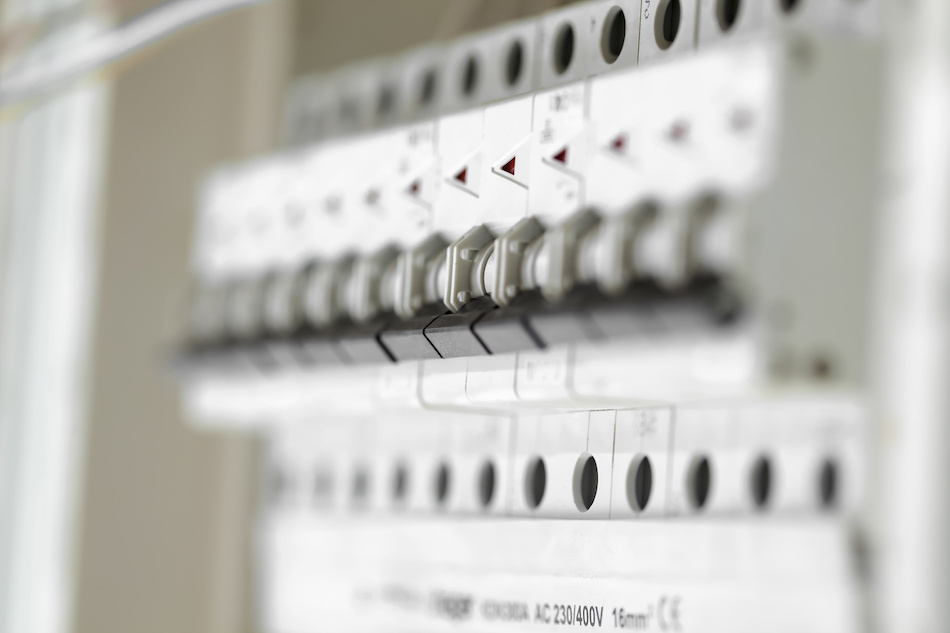A fuse box uses replaceable wires that melt under overload, while a circuit breaker has a switch that trips automatically to stop the flow of electricity.
What is a Fuse Box
The backbone of an older home's electrical system is a fuse box. Fuse boxes were the old standard for how power was managed in a property, and of protecting circuits from overloads using fuses before the modern solution of circuit breakers.
Components and Operation
Typical fuse boxComponents and Operation A standard fuse box consists of a bulkhead fitted with fuses, which are screwed down to the panel centrally. All the fuses are designed to prevent more current flow in the connected circuit than it can handle. When the fuse is overloaded by the passage of a destructive current, a thin metal strip in the fuse is going to melt which, equivalent to opening the circuit. This stops electric flow that may likewise lead to electrical fires due to overloads.
Common Fuse Types
- Type W Fuses: A time-delay fuse for use in circuits with high-current equipment whose initial startup current might cause a standard fast-blow cartridge or plug fuse to blow. They will let a surge of current through without burning the fuse out.
- Type S Fuses: Created to avoid wrong fuse replacement, these fuses possess threads which can be tailored to only specified adapters to make sure the relevant amperage fuse is put there.
Usage and Settings
Homes would be fitted with a fuse box, up to the 1960s You commonly find them in older g2 homes that have not yet converted to the modern electrical panel with circuit breakers. Fuse: Fuses are linked to types of circuits in the home which range from lighting fixtures to main appliances. It is important for homeowners with fuse boxes to know the size and compartments of each fuse - to prevent circuit overloads by installing an oversized fusible link to replace a blown-out one.
Limitations and Considerations
Drawbacks and Things to note While the fuse box is a perfectly good way to handle electrical circuits, it does have its drawbacks when compared to modern circuit breakers. They have to be replaced manually after dealing with an overload, whereas over-current protection fuses only need to be reset. Which can be inconvenient and even dangerous in the worst case. Be sure to keep track of how many and what all those fuses do - that will help you from having to replace them as often, won't you, and also help to keep ensure save operation.
What is a Circuit Breaker
If you have a newer home or building, chances are the circuit breakers are your electrical safety device. They are generally used to protect electrical circuit from damage occurrence due to excess current. One of its primary purposes is to break current flow after a fault has been detected.
Components and Operation
Circuit Breaker Panel, Components and Mechanism A circuit breaker panel, better known as the breaker box is divided into breakers - one breaker for each of their respected circuits, designed to cut off electrical flow in its specific circuit. Circuit breakers, unlike fuses that must be replaced, can be easily reset by flipping a switch, so they are more convenient for controlling and also restoring power.
Every breaker in the panel has an ON / OFF switch and go off automatically if something goes wrong in the flow of electricity was detected. The fix and flush mechanism is usually based on a bi-metallic strip that heats up and deforms to disconnect the circuit at a certain current level.
Advantages over Fuse Boxes
- Reset Capability : Circuit breakers, in case of tripping, can be reset within seconds, which is a huge benefit over fuses that need to be replaced.
- Safety: They are safer to operate as, with fuses, you have to handle potentially dangerous fuse materials and installations at the incorrect fuse size is a common problem with this system.
- Durability: Circuit breakers are the preferred option for long-term use, and they offer reliable safety and performance without requiring regular maintenance or examinations.
Modern Usage
Contemporary Usage Today, circuit breakers are included in all residential, commercial and industrial building codes in the USA and many other countries. In modern electrical systems they have a very important advantage that they make the process of modifying and developing electrical circuits simpler. It is this flexibility that is critical when upgrading home electrical systems to provide new appliances and technologies.

Key Differences Between Fuse Boxes and Circuit Breakers
Impression to ElectricalOverloads
What both fuse boxes and circuit breakers do is the exact same thing which is to protect an electrical circuit from an overload by interrupting a power flow that would be more than the safe level. But they respond to disturbances differently. Blown Fuse (must be replaced), Tripped Circuit Breaker (resettable) This highlights one of the abject benefits of circuit breakers with respect to ease and latency of recovery for end user experience.
Durability and Simplicity for Reset
Circuit breakers are able to be reset by simply turning the switch back ON after tripping from an overload or short-circuit. By comparison, fuse boxes require replacement of a fuse when one blows. First of all, replacing a fuse requires more man hours and is harder to do without human error choosing which type & rating of fuse yet done by human.
Safety Features
Circuit breakers offer increased user safety to that of the fuse boxes. Electricity flows in a limited way but the ongoing can be sustained via circuit breakers which already designed with prevention from insertion of another high capacity breaker by mistake and this can cause fire. Additionally, many contemporary circuit breakers incorporate ground fault circuit interrupters (GFCIs) and arc fault circuit interrupters which help prevent electrical fires and shocks—sets of protections not provided by older fuse systems.
Durability and Reliability
Research and statistics have constantly exhibited that a circuit breaker lasts longer than fuses along with being more reliable. Such capacitors are less likely to fail due to ageing and are better able to withstand the high voltage in the medium-voltage mains of modern home appliances.
Pros and Cons of Fuse Boxes
Benefits of Fuse Boxes
When done the right way, fuse boxes can still be beneficial as they have some merits, especially in certain situations. ==> The best part is their cost-effective nature. These days, fuse boxes tend to be less expensive to install than modern circuit breaker systems. This makes them a good choice for older homes or with little electrical demand and you do not think that will get bigger.
Disadvantages and Limitations
While they are great on paper, there several critical points that disqualify fuse boxes from becoming better then breakers despite saving money upfront. The most critical is safety. In the event that they do blow, fuses must be replaced-a process that requires more maintenance costs than can be averted-else you risk running an unsafe situation with the wrong type of fuse and risking an overload.
Cons Compliance Issues Regulatory
Safety is the biggest reason new constructions are often required by regulations to use circuit breakers. Fuseboxes do not support the easy integration of ground fault circuit interrupters (GFCIs) or arc fault circuit interrupters (AFCIs), standards mandated for new residential construction.

Pros and Cons of Circuit Breakers
Advantages of circuit breakers
Circuit breakers come with excellent safety features. The most important advantage of these is they can be reset very fast or easily after any trip/untrip. This not only make the availability more convenient but also shorten the downtime for the power to be active. Circuit breakers automatically interrupts the flow of current to protect your electrical system from being damaged by overloads or short circuits.
Possible Drawbacks
While circuit breakers have many benefits, they also have some limitations. A circuit breaker panel usually has a higher initial cost compared to a fuse box. Factors like these can make a difference when budgets are stretched. Further, though circuit breakers are reasonably robust on the overall, they do need to be tested every now and then to make sure they operate properly. This upkeep can push the total cost of ownership.
